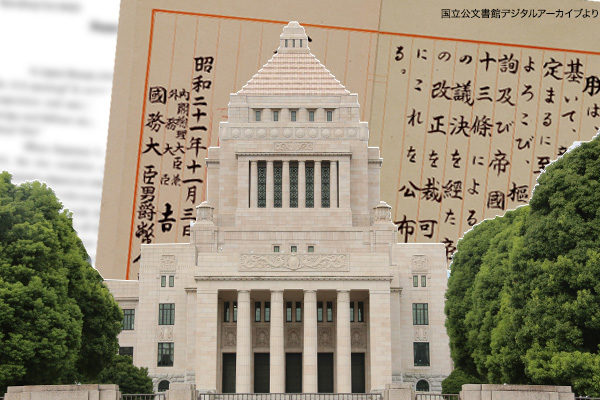Japanese Prime Minister Fumio Kishida has repeatedly said that he will pursue constitutional amendment before his term as president of the ruling Liberal Democratic Party ends in September this year. While strongly hoping for the realization of the amendment, I suspect that Kishida’s commitment might have become a mere slogan for him to retain support from conservatives within the party. Unless he demonstrates leadership beyond mere rhetoric, constitutional amendment by September seems unlikely.
Why not drafting provisions within the current Diet session?
“Regarding the party’s basic policy of constitutional amendment, with the intention of realizing it during my term as the party president, this year we will proceed to concretize the draft provisions and accelerate discussions that transcend party lines,” Kishida told the LDP convention on March 17.
If a national referendum on constitutional amendment is to be held in September, the National Diet will have to propose the draft amendment by July to secure at least 60 days for the notification to voters.
Why did Kishida offer to proceed to concretize the draft provisions “this year” while being well aware of the approaching time limit? Unless the draft provisions are written up within March, rather than “this year,” the Diet will fail to propose the draft amendment during its current ordinary session scheduled to end in June.
In his policy address on January 30, Kishida also emphasized that “my intention to realize constitutional amendment during my term as the party president remains unwavering, and I intend to do everything to advance discussions on the matter.”
So far, however, Kishida has never strongly instructed his LDP to write up the draft provisions. This is because he has been busy with addressing LDP factions’ political fundraising scandals. The Deliberative Council on the Constitution in the House of Representatives has never met so far this year to discuss constitutional amendments.
I cannot but suspect that Kishida has used the word “this year” instead of “within the current Diet session” in anticipation that constitutional amendments by September is unlikely.
Japan is no “small country”
In his address to the LDP convention, Kishida described Japan as a “small country in the Far East” before talking about the constitutional amendment. What a misperception it is! Japan may have been a “small country” before the Meiji Restoration or just after its defeat in World War II. When the constitution was established, the United States was dominating the world, allowing the U.S.-drafted Japanese constitution to include a clause staying “land, sea, and air forces, as well as other war potential, will never be maintained.”
Now that the U.S.’ influence has declined, Japan must enhance its own defense capabilities. Japan as a big power in the world is required to cooperate with the U.S. in countering authoritarian states. For that reason, Japan must amend its constitution.
If Kishida cannot realize his public promise of amending the constitution, he should be disqualified to be reelected as LDP president.
Takashi Arimoto is a Planning Committee member at the Japan Institute for National Fundamentals and publisher of Monthly Magazine SEIRON at the Sankei Shimbun newspaper.


